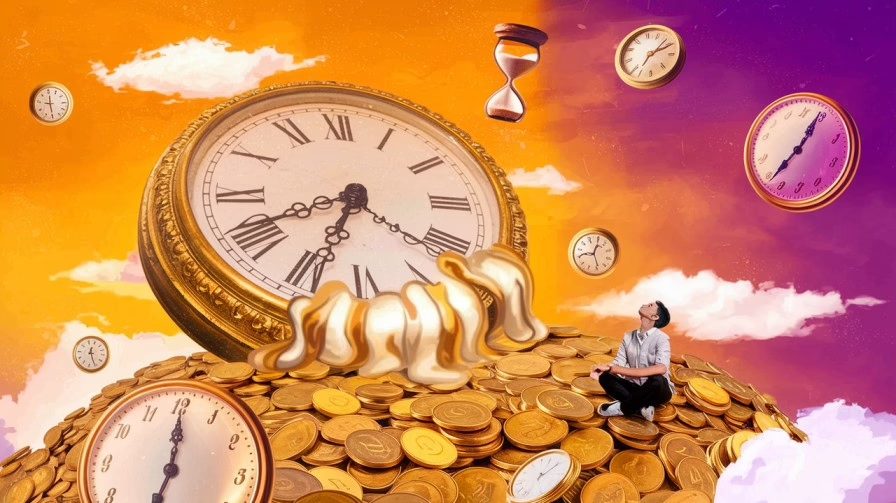Unpacking the Illusion of Money
Have you ever paused to ask yourself why you really want that new gadget, that raise, or that perfect Instagram shot? At the heart of our cultural obsession lies the illusion of money—the idea that accumulating wealth equals security, status, and happiness. In reality, money is a human invention, a system of symbols and trust, much like roads on a map that don’t actually move us forward unless we choose to travel.
In this post, we’ll explore the intertwined illusions of money, time as an illusion, and ego, and offer fresh perspectives on how to navigate life more mindfully. Through research-backed insights and actionable strategies, you’ll learn to break free from chasing shadows and savor the genuine riches of the present.

Comparison of Illusions: Money vs. Time vs. Ego
Each of these constructs—money, time, ego—operates largely in our minds. Here’s a quick comparison:
| Illusion | Description | Impact on Life |
|---|---|---|
| Money | A symbolic measure of value and exchange [origins of money] | Drives consumption, debt, social comparison |
| Time | A mental framework dividing past, present, future [time as an illusion] | Fuels regret, anxiety, and planning traps |
| Ego | Our socially constructed self-image | Promotes external validation, fear of criticism |
The Illusion of Money
The Origins of Money: From Barter to Bitcoin
Money didn’t spring into existence; it evolved from barter systems around 3000 BCE in ancient Mesopotamia. Commodities like grain and cattle served as early “currencies” until metal coins standardized value, and eventually paper notes and digital ledgers emerged. Understanding this evolution reveals that money is fundamentally a shared agreement—not an absolute.
Key Insight: Recognizing money’s human-made origins helps us see it as a tool, not an idol.
Chasing Money: The Endless Treadmill
Modern life often feels like a rat race: earn more, spend more, impress more. Sociologist Juliet Schor notes in The Overspent American that beyond a certain point, higher income doesn’t equate to greater happiness. The danger lies in conflating income with abundance, then shopping our way to fulfillment.
- Debt dependency: Credit cards and loans mask the real cost of living beyond means.
- Social media comparisons: A curated feed of luxury ups the ante for everyone.
Actionable Tip: Implement a 24-hour delay on non-essential purchases. That pause often reveals whether the desire is genuine or a reflex to ego-driven anxiety.
Time as an Illusion
Why We Fear Past and Future
Psychology research shows dwelling on the past breeds regret and depression, while fixating on the future fosters anxiety and stress. Yet the only moment we ever experience is the present. As mindfulness teacher Jon Kabat-Zinn explains, true engagement arises when we anchor in “right now”—the point where life actually happens.
Practical Present-Moment Practices
- Micro-pauses: Before each major decision (buying, sending an email), pause and take one deep breath.
- Sensory anchoring: Notice three things you can see, two you can hear, and one you can feel.
- Time audits: Track how you spend your day in 30-minute blocks to reveal where past/future worries consume you.
The Ego’s Illusion
How the Social Self Misleads Us
Our personalities are partly scripts given to us by culture, family, and peers. When we buy things to “fit” a certain image—luxury cars, fashion labels—we’re feeding the ego’s hunger for approval. Philosopher Alan Watts warned that “who you think you are is entirely dependent on who people have told you you are.”
Strategies to Quiet the Ego
- Gratitude journaling: List three unpurchased things you’re grateful for each day—friendship, health, curiosity.
- Ego audit: Before sharing on social media, ask: “Am I posting this for connection, or for validation?”
- Creative embodiment: Activities like freeform dance or unscripted art break the link between identity and external praise.
Conclusion: From Menu to Meal
Money, time, and ego are powerful illusions that shape our choices—but they don’t have to rule us. By tracing the origins of money, recognizing time as an illusion, and dismantling the ego’s narratives, we reclaim agency over our lives. Real wealth lies not in what we accumulate, but in the richness of each unfiltered moment.
Now it’s your turn:
- Reflect on one money-driven habit you can pause this week.
- Try a 24-hour delay on a purchase you’ve been eyeing.
- Share your experience in the comments or tag us on social media with #RealWealthNow.
Let’s move off the menu of illusion and savor the feast of reality.



